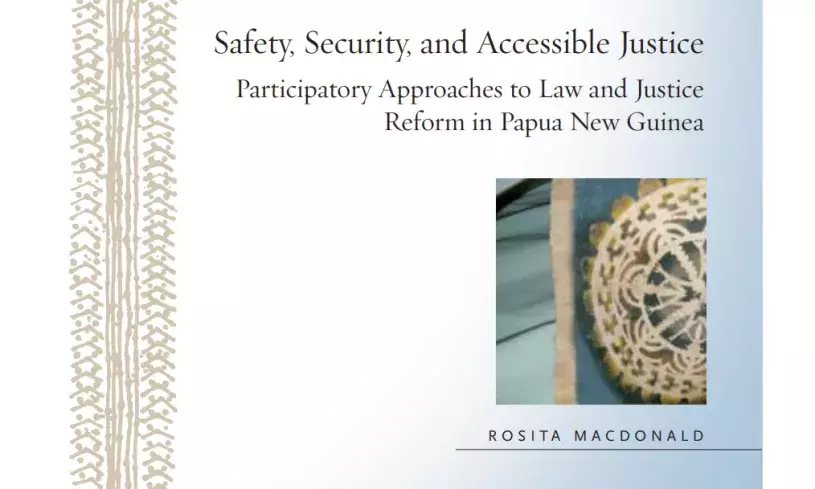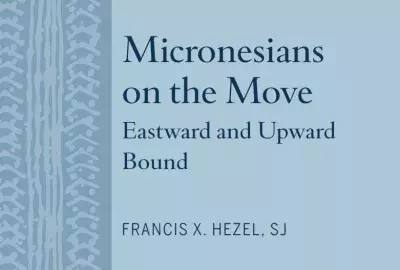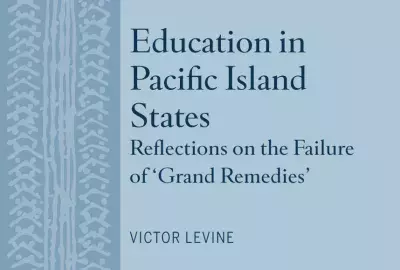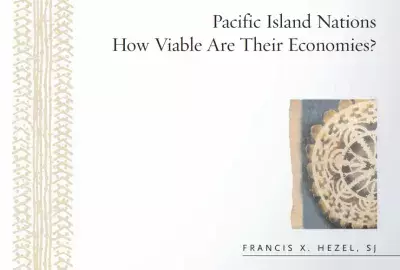Error message

Rosita MacDonald examines the challenges facing the law and justice reform partnership between Australia and its former colony Papua New Guinea (PNG). Serious safety and security issues confront PNG, with the incidence of violent crime increasing and the capacity of the law enforcement, court, and prison systems to deal with offenders deteriorating.
MacDonald acknowledges the challenge of implementing institutional reforms appropriate to the PNG cultural and political context, and highlights the fact that measurable and sustainable reforms within the law and justice sector have failed to occur despite a substantial investment of resources from both governments. Law and justice policy in PNG should shift, she says, from the official rhetoric supporting traditional and community-led approaches to a greater investment by the PNG and Australian leadership to restorative justice approaches, the village court system, and under-utilized community organizations.
About the Author
Rosita MacDonald has conducted extensive research on Australia’s relationship with Papua New Guinea as a researcher for the Center for Judicial Studies, the organization contracted to lead the Australian government’s AusAID Justice Advisory Group to PNG between 2003 and 2005. She continued her interest in Pacific Islands development at the Lowy Institute of International Policy in Sydney, where she helped write and edit a publication examining culture, democracy, and Australia’s role in Papua New Guinea. Following two years working in civic education at the East-West Center, MacDonald is currently a junior associate in the Governance, Law, and Civil Society unit of The Asia Foundation. She holds a masters degree in public policy, specializing in international development policy, from the University of New South Wales, and has a baccalaureate in government and Arab and Islamic studies from the University of Sydney.
Rosita MacDonald examines the challenges facing the law and justice reform partnership between Australia and its former colony Papua New Guinea (PNG). Serious safety and security issues confront PNG, with the incidence of violent crime increasing and the capacity of the law enforcement, court, and prison systems to deal with offenders deteriorating.
MacDonald acknowledges the challenge of implementing institutional reforms appropriate to the PNG cultural and political context, and highlights the fact that measurable and sustainable reforms within the law and justice sector have failed to occur despite a substantial investment of resources from both governments. Law and justice policy in PNG should shift, she says, from the official rhetoric supporting traditional and community-led approaches to a greater investment by the PNG and Australian leadership to restorative justice approaches, the village court system, and under-utilized community organizations.
About the Author
Rosita MacDonald has conducted extensive research on Australia’s relationship with Papua New Guinea as a researcher for the Center for Judicial Studies, the organization contracted to lead the Australian government’s AusAID Justice Advisory Group to PNG between 2003 and 2005. She continued her interest in Pacific Islands development at the Lowy Institute of International Policy in Sydney, where she helped write and edit a publication examining culture, democracy, and Australia’s role in Papua New Guinea. Following two years working in civic education at the East-West Center, MacDonald is currently a junior associate in the Governance, Law, and Civil Society unit of The Asia Foundation. She holds a masters degree in public policy, specializing in international development policy, from the University of New South Wales, and has a baccalaureate in government and Arab and Islamic studies from the University of Sydney.







